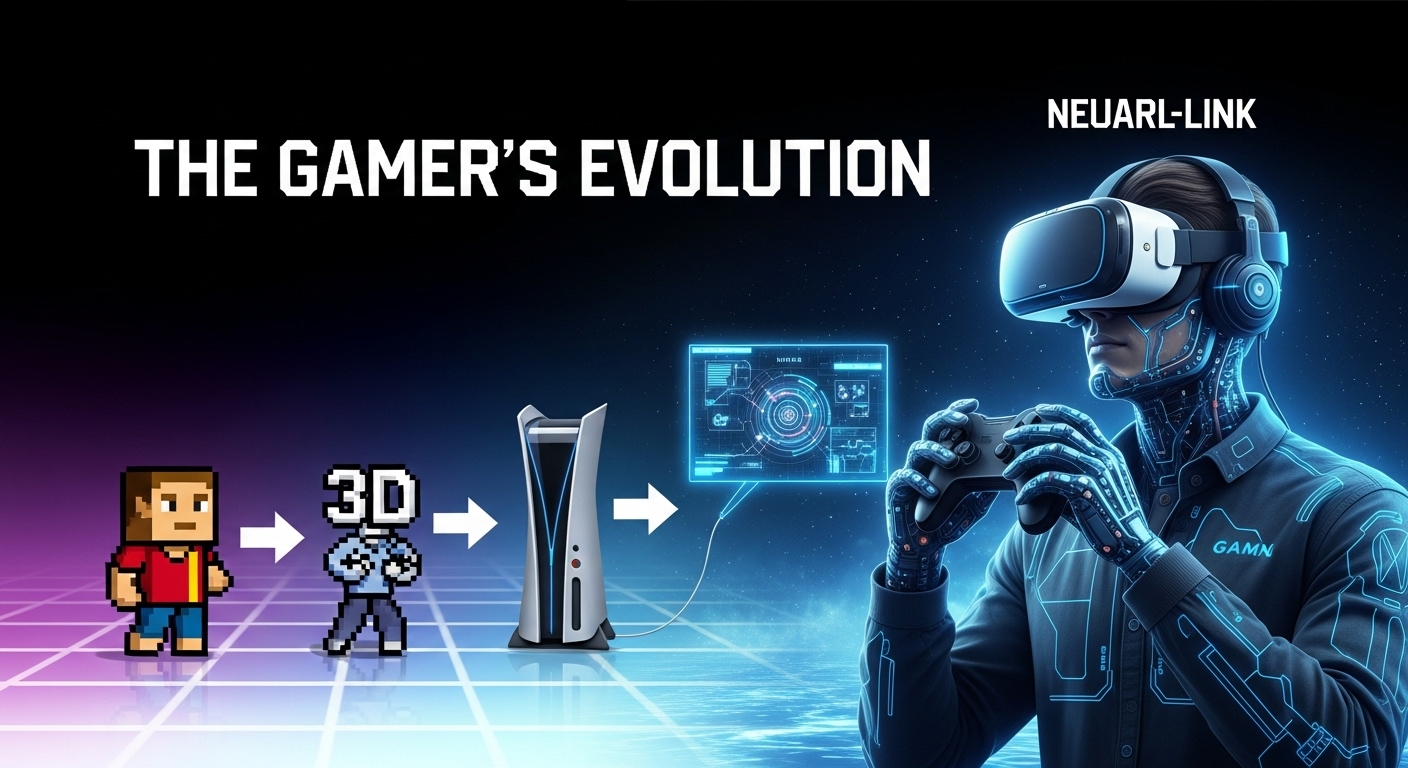Gaming has come a long way since the days of simple 8-bit graphics and basic sound effects. Today, it has grown into one of the largest and most immersive entertainment industries in the world. Whether it’s on your console, PC, or mobile device, gaming has transformed into a deeply engaging experience that allows players to step into other worlds, explore new stories, and challenge their skills. In this blog, we’ll explore how gaming has evolved over the years, how it’s shaping the future, and what makes it such an irresistible part of modern culture.
The Early Days: From Arcades to Consoles
The journey of gaming started in the 1970s with simple arcade games like Pong and Space Invaders, which quickly became pop culture phenomena. These early games were easy to play but difficult to master, offering players a fun, competitive outlet. By the 1980s and 1990s, home consoles like the NES, Sega Genesis, and PlayStation began to emerge, marking a major shift from arcade gaming to home entertainment. These consoles allowed players to enjoy games like Super Mario Bros., Sonic the Hedgehog, and Final Fantasy in the comfort of their own homes, paving the way for a new era of gaming.
The Rise of 3D Graphics and Online Play
As technology advanced, so did gaming. The introduction of 3D graphics in the late 1990s gave rise to iconic games like The Legend of Zelda: Ocarina of Time and Gran Turismo. The sense of immersion these 3D worlds created was a game-changer, allowing players to experience virtual environments in ways they had never imagined. Around the same time, online gaming started to take off, starting with titles like Diablo II and Quake. The ability to play with friends—or even strangers—across the globe was revolutionary and helped foster a sense of global community among gamers.
Mobile Gaming: Gaming in Your Pocket
In the early 2000s, smartphones began to take over the tech landscape. With the release of mobile app stores, gaming moved from dedicated consoles and PCs to the pocket-sized devices we carry with us everywhere. Games like Angry Birds, Candy Crush, and Pokémon GO turned casual gaming into a global phenomenon, drawing in players who may have never considered traditional gaming before. Mobile games are designed to be easy to pick up and play, making them perfect for people with busy lifestyles.
While mobile games often have simpler mechanics than console or PC games, they’ve evolved to include highly immersive experiences, such as open-world exploration, role-playing games (RPGs), and even multiplayer games. For instance, Genshin Impact offers a vast open world with beautiful graphics and complex mechanics, all on a mobile device.
Virtual Reality and Augmented Reality: The Future is Now
One of the most exciting frontiers in gaming is Virtual Reality (VR) and Augmented Reality (AR). These technologies have allowed players to step into fully immersive virtual worlds, blurring the lines between reality and fantasy. VR systems like the Oculus Rift and PlayStation VR give players the ability to experience games as if they were actually inside them, offering a level of immersion that was previously unimaginable.
On the other hand, AR games like Pokémon GO have brought gaming into the real world. Players interact with virtual objects and characters that appear to exist in their actual environment. These technologies not only enhance gameplay but also open the door to new forms of storytelling, where the game world and the real world can exist side by side.
The Social and Competitive Elements of Gaming
Gaming today is more than just about playing games—it’s about socializing, competing, and creating communities. Online multiplayer games like Fortnite, League of Legends, and Call of Duty have evolved into global phenomena, drawing in millions of players who interact with each other in both cooperative and competitive ways. eSports has risen to prominence as a spectator sport, with professional gamers competing for huge prizes and streaming their matches for audiences worldwide.
At the same time, gaming has become a medium for content creation. Streamers on platforms like Twitch and YouTube have turned gaming into a form of entertainment in itself, where fans can watch their favorite personalities play, commentate, and engage with their communities in real-time.
Gaming and the Power of Storytelling
One of the most powerful aspects of modern gaming is its ability to tell stories. The evolution of graphics and game design has allowed developers to craft deeply emotional and immersive narratives, rivaling some of the best films and literature. Games like The Last of Us, Red Dead Redemption 2, and God of War have introduced players to complex characters, intricate plots, and beautifully realized worlds that make you feel like you’re part of the story.
Unlike passive forms of entertainment like movies or television, gaming allows the player to take an active role in shaping the narrative. Whether it’s making decisions that impact the storyline or simply exploring the world and discovering hidden secrets, gaming offers an interactive form of storytelling that can deeply resonate with players.
The Role of Indie Games: A Creative Revolution
While AAA games dominate the market, indie games have become an increasingly important part of the gaming ecosystem. Independent developers are pushing the boundaries of creativity, often with smaller budgets but huge passion for their craft. Games like Hollow Knight, Celeste, and Undertale have proven that innovation and creativity can thrive outside the big studio system.
These indie games often explore unique themes, experimental mechanics, and artistic styles that set them apart from mainstream titles. With platforms like Steam, itch.io, and even console digital storefronts, indie games have found an eager audience who crave new and diverse gaming experiences.
The Ethical and Cultural Impact of Gaming
As gaming continues to grow, it has also raised important conversations around issues such as inclusivity, addiction, and the impact of violence in games. The gaming community has made strides toward becoming more inclusive, with increasing representation of women, people of color, and LGBTQ+ characters in games. However, there’s still much work to be done to ensure that gaming is welcoming to all players.
The conversation around gaming addiction has also gained traction, especially with the rise of mobile games that rely on microtransactions and loot boxes. Game developers have a responsibility to create games that prioritize player well-being while still being fun and engaging.
The Future of Gaming: What’s Next?
So, what’s next for the world of gaming? As technology continues to advance, we can expect even more immersive experiences with the rise of artificial intelligence, cloud gaming, and deeper integration of VR and AR. The growing accessibility of gaming, thanks to platforms like Google Stadia, Xbox Cloud Gaming, and PlayStation Now, means that more people than ever will be able to enjoy high-quality gaming experiences without needing expensive hardware.
Moreover, the rise of artificial intelligence promises to create smarter, more dynamic game worlds that react to player choices in real-time. Whether it’s in combat, exploration, or storytelling, AI will make games more unpredictable and interactive than ever before.
Conclusion: Gaming as an Ever-Evolving Art Form
From its humble beginnings to its status as a global cultural phenomenon, gaming has proven that it’s not just a pastime, but a powerful art form. It has the power to entertain, to bring people together, to challenge the mind, and to tell stories that resonate on a deeply personal level. As technology continues to advance, so too will the potential for gaming to evolve, offering even more immersive and innovative experiences.
The future of gaming is bright, and the journey is far from over. Whether you’re a seasoned player or someone just starting to explore this fascinating world, there’s no doubt that gaming will continue to captivate and inspire for years to come.



